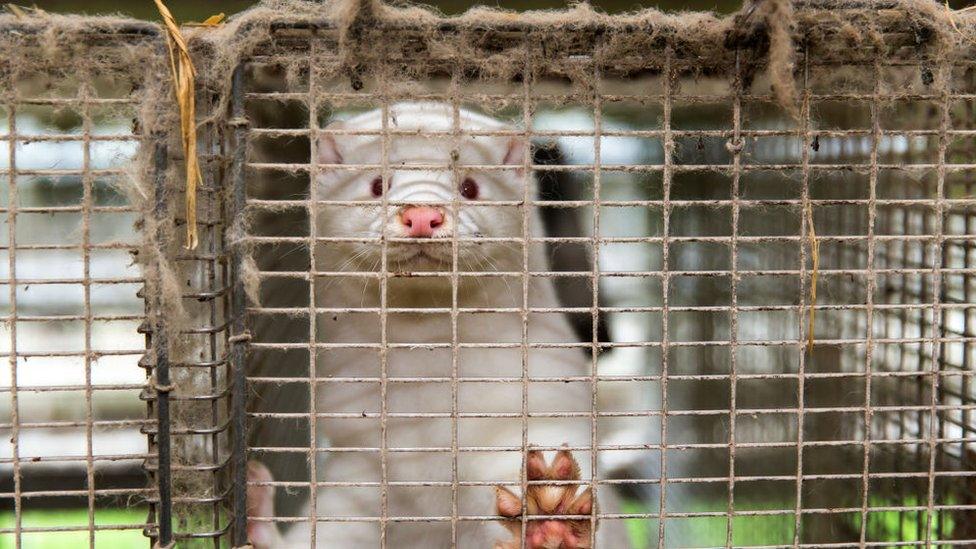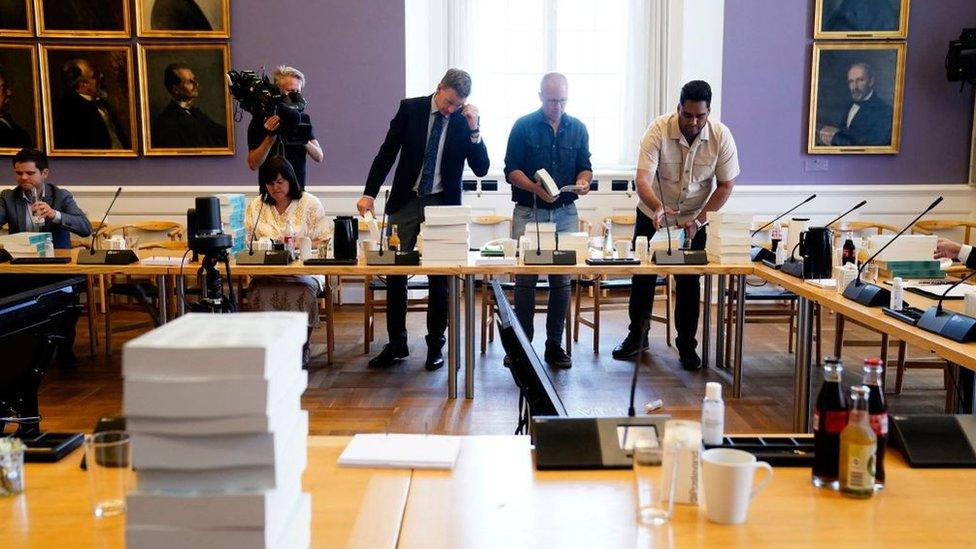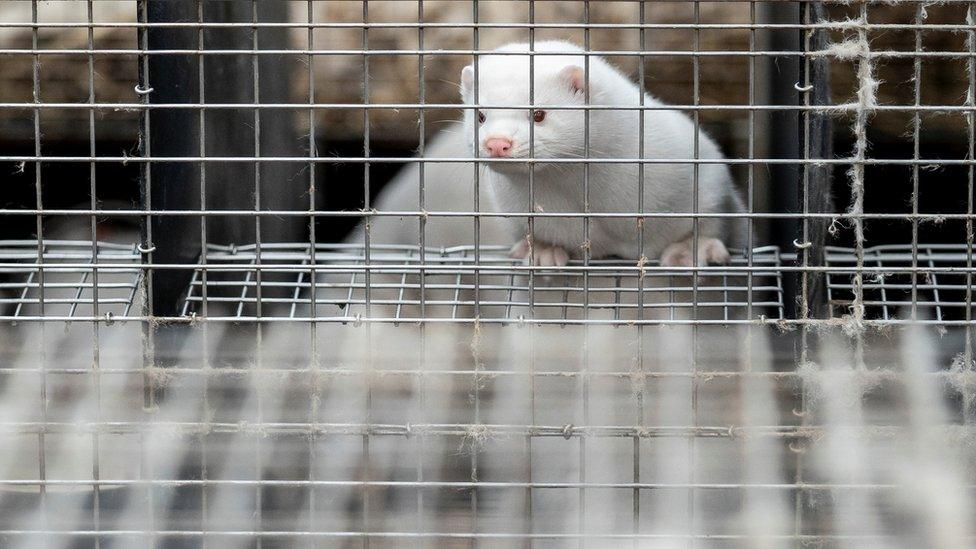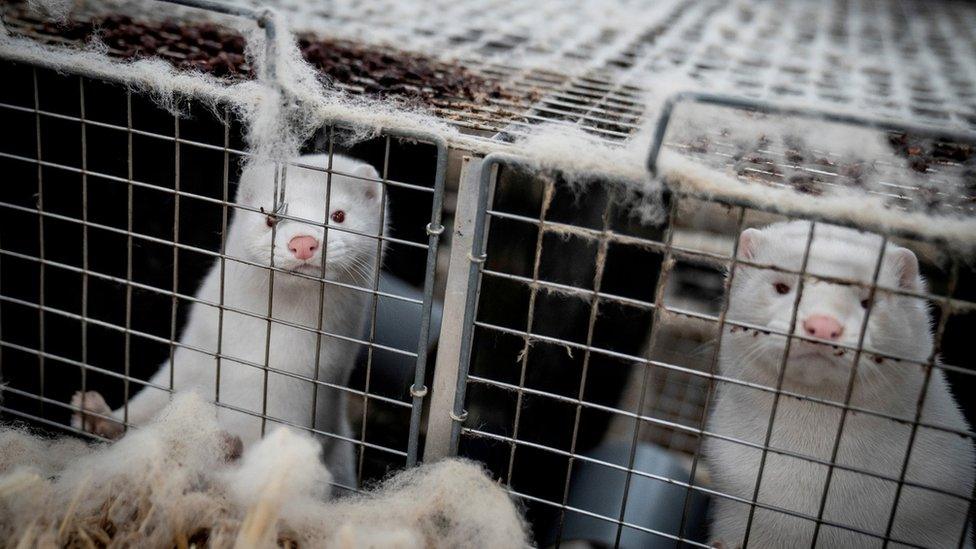Danish mink cull: PM Frederiksen and officials heavily criticised
- Published

Up to 17 million mink were slaughtered after a mutated strain of coronavirus was found in farms in northern Denmark
Danish Prime Minister Mette Frederiksen has been heavily criticised by a commission investigating her government's decision to cull millions of mink during the Covid pandemic.
In 2020 the government decided to cull Denmark's entire farmed mink population to try to stop the spread of Covid-19.
But there was a political outcry when it emerged there was no legal framework in place to carry it out.
Ms Frederiksen will respond to the report's criticism on Friday.
Her remarks announcing the cull were "grossly misleading" and the order broke the law, but her decision was unintentional, said the commission appointed by parliament. Its heaviest criticism was reserved for a number of leading government officials and the head of Danish police.
Coronavirus: Denmark shaken by cull of millions of mink
The slaughter of up to 17 million mink was ordered by the government in November 2020 after a mutated Covid variant was found in some farms in the north of the country.
After the order was given to cull all infected and healthy mink, Danish farmers appeared on TV in tears over the loss of their livelihoods, as mass graves appeared in the Danish countryside filled with the slaughtered animals.
Ms Frederiksen gave the order during a press conference on 4 November. But a few days later it emerged there was no legal framework in place to carry it out, prompting widespread public and political outrage.
That led to the resignation of agriculture minister Mogens Jensen, as well as the launch of an inquiry into whether the government had known the legal framework was missing when the culling order was made.

The Danish commission of inquiry reserved much of its criticism for top civil servants and the head of police
In its report, the so-called Mink Commission said the prime minister's remarks were "grossly misleading" to both mink breeders and the public.
It added, however, that she was unaware that the order to kill the mink population was unlawful, reflecting Ms Frederiksen's own earlier explanation, blaming the government's heavy workload for the oversight.
The report also went on to criticise heavily several high-ranking officials including the former agriculture minister and the prime minister's head of department, Barbara Bertelsen. Ms Bertelsen was found to have committed grave misconduct.
Ten top civil servants should face disciplinary action, the report recommended. The head of Danish police, Thorkild Fogde, is accused of misconduct for failing to react swiftly when he was told there was no legal basis for the cull.
Uncertain future for PM
For now the repercussions of the report are unclear for Social Democrat Mette Frederiksen and the minority government she has led since 2019, supported by three left-leaning parties.
Her future rests on support in parliament. If one of the parties supporting the government backs an independent legal assessment of the report, that could prompt the launch of an impeachment case against the prime minister.
One of the three supporting parties - the Red-Green alliance - has said it will back her as she did not intentionally do anything wrong. The two other parties say they need more time.
So far, only opposition parties want the case to go to impeachment.
Ms Frederiksen is due to give a statement on Friday morning in Madrid, where she is attending a Nato summit.
Related topics
- Published11 November 2020

- Published21 December 2020
